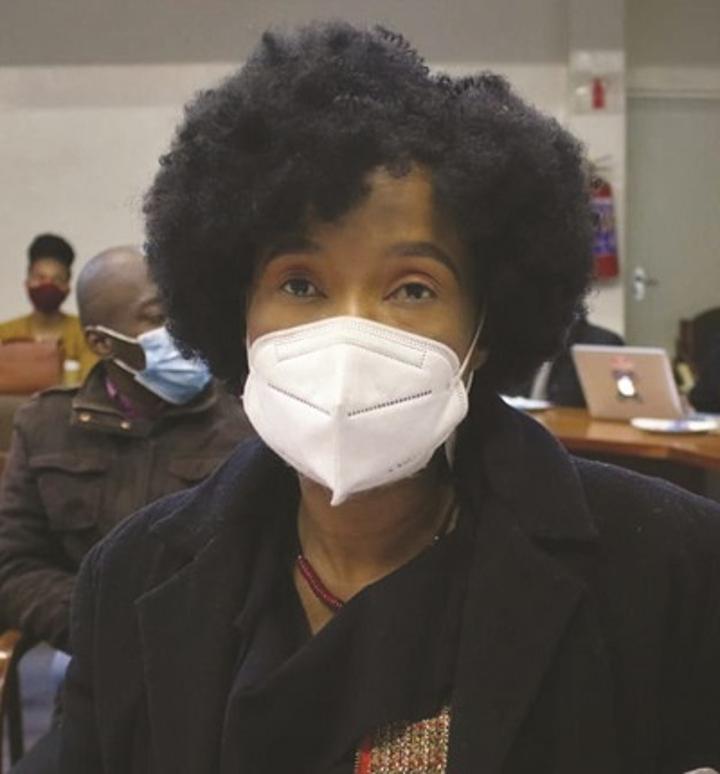Africa-Press – Lesotho. Although women’s willingness to advance in their political careers can also be influenced by family and relational consideration, their hesitation to take part in politics can have misconduct in many ways including lack of confidence and also adhering to the amendments of the laws governing their country, wherebyn politics are mostly controlled by men. The Electoral Institute for Sustainable Democracy in Africa (EISA) report shows that politics in Lesotho are generally a male dominated affair since independence in 1966. Women’s recognition in politics gained a ground recently,
where their representation rose from a meagre 3.8% in 1998 when a purely plurality system was used, 7.63% in 2002 after the Mixed Member Proportion (MMP) system was
introduced and then more dramatically to 25% after the 2007 election. According to the EISA Observer Mission Report, only 17.3% of constituency candidates were
women although 33% for candidates list was allocated strictly for women during the 2007 National Assembly elections. On the other hand, the analysis of the
report revealed that Lesotho’s statistics on gender equality in Africa, indicate that the numbers of women in the central committees of political parties participate
actively, especially when it comes to electioneering and canvassing. In an interview with Informative Newspaper, Basotho National Party (BNP) Member of Parliament (MP) female candidate, ‘Machere Seutloali
highlighted that women are hesitant to take part in politics because a lot of people tend to bad mouth and speak nasty things about them. She said women need
to double their efforts unlike men in terms of campaigning for leadership positions. “Naturally, women are fearful when it comes to matters that may put
them in the spotlight. For those who have children, they tend to think that taking part in politics may tarnish their reputation and embarrass them in
front of their families if their names are ever dragged in the mud. Another thing is, it is morally right for a man to campaign anywhere even in bars while
drinking but for a woman it may be considered immoral,” she said. Seutloali further said in Lesotho the moment someone actively embarks on a journey of
politics, it is the moment that many channels are opened. Channels of attention and bad-mouthing. She said women tend to be character assassinated, whereby a
lot of propaganda and negative assertions are made about them. She encouraged women to participate in politics, stating that women are naturally born multitaskers.
She mentioned that women taking part in politics could bring a lot of improvements and changes, let alone if they would support each other. Seutloali further stated that it has been 57 years since the first elections
were held but not even once has Lesotho had a female Prime Minister. On the other hand, Pontšo Konyama pointed out that the reason a lot of women have no interest in politics is because women do not support each other and
would rather vote for a man instead. She said if only women could stand together and have each other’s backs, they would definitely win as they outnumber men.
Moreover, Hon. Tšepang ‘Matlhohonolofatso Tšita-Mosena indicated that as Lesotho gears up for the 2022 General Elections, it is worth reflecting on the challenges facing women in the political landscape.
“We might all be patiently and excitedly waiting for the official day to go out to the
polls and even support women in our communities. However, the crucial time for their support is actually now or for some it has already passed. The moment to
identify and give backing to those women we feel can and should bring change for Lesotho is determined by their political parties. “It is more important considering that even though Lesotho has signed for
Sustainable Development Goals (SDGs), it needs to be gearing towards achieving the indicators. SDG 5 is targeted at ending all forms of discrimination against
women and girls everywhere with target 5.5 aiming to ensure women’s full and effective participation and equal opportunities in leadership at all levels of
decision-making in political, economic and social levels. Indicator 43 focuses on the percentage of seats held by women and minorities in the national
parliament according to their respective share of the population,” she noted. Hon. Mosena also said it is a societal norm in Lesotho for women not to be elected
for the National Assembly positions in satisfactory numbers. In the 10th parliament, only 8 women out of 80 constituency seats were won by women. The proportional representation model has helped a lot with 20 women and 20 males
nominated to parliament. The 2017 cabinet started out with only five women ministers out of which nine were women deputy leaders, a setup that has not
changed much to date. “It is time to call upon each and every Mosotho to develop interested in political developments to eventually make it to the polls as we work hard to have a
larger representation in parliament. However, let us not forget that having more women in leadership positions will give us the much needed gender balance.
It is equally important that all female political activists, as well as those who are in party structures are elected into to the National Executive Committee (NEC),” she advised.
According to the Status of women in Lesotho report by Lesotho Council of Non-Governmental Organizations (LCN), in the political sphere, reservation of seats in some
electoral divisions are for women candidates only, this was the first intervention by the government of Lesotho to promote gender equality. There are various
reasons for women’s political apathy; the patriarchal nature of the state excludes women from the public sphere. It is high time that women stand up and boldly take the lead. One change can bring a lot of positive opportunities and bring Basotho and Lesotho to greener pastures.
For More News And Analysis About Lesotho Follow Africa-Press






